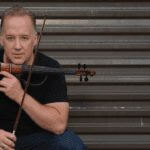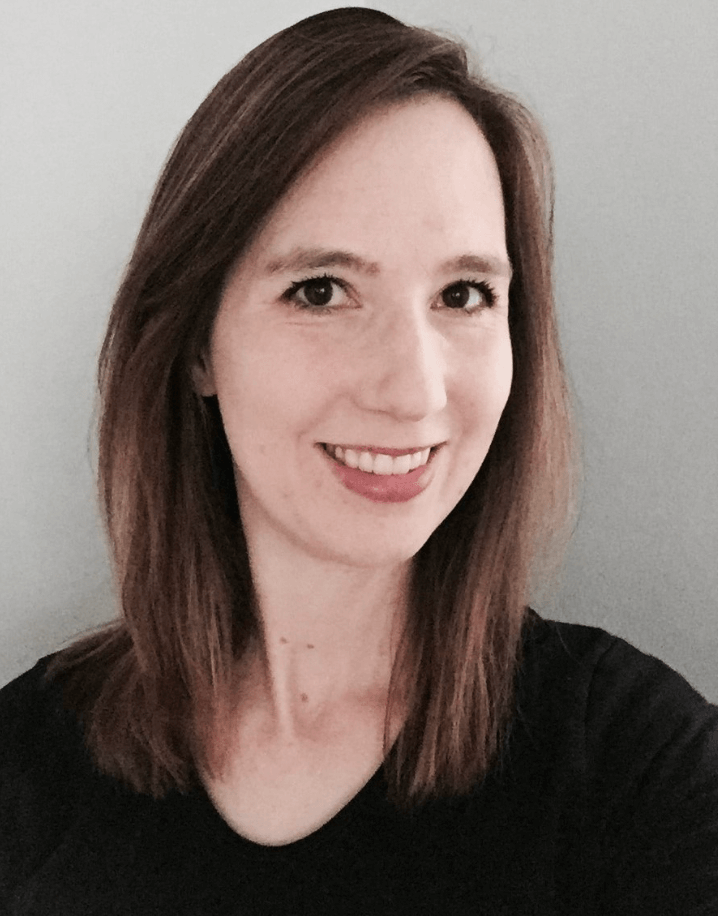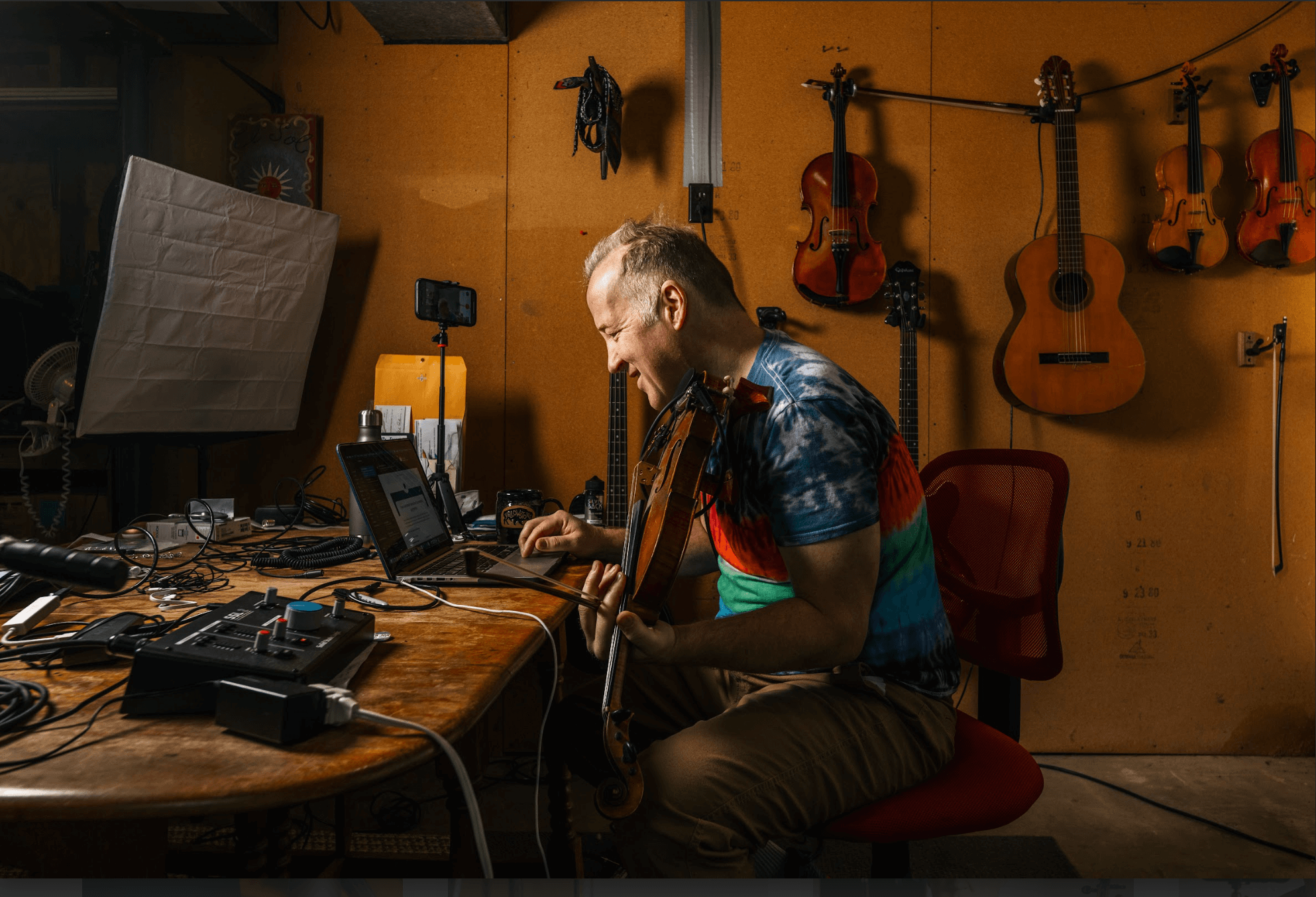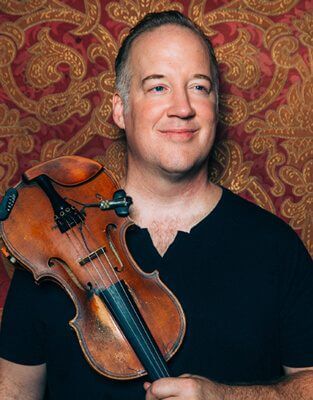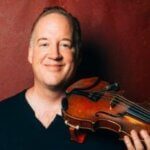I’ve heard people say something to the effect that “jazz doesn’t lie well on the violin”, and was always skeptical. Having started playing jazz when I was about 20, it wasn’t an easy thing for me to master a new language and skill set, and I’ve watched many of my students at Berklee struggle with it, frustrated that it doesn’t come more quickly. I always believed it was a matter of the “culture of education”. For example, guitarists have a certain way of teaching and learning that perpetuates itself. Improvisation is popular. So is understanding the construction of the music, the way the different parts of songs go together like bass lines, inner voices, grooves…. Bassists and drummers have their “culture” of learning and teaching as well. Jazz pianists probably have the highest bar. since they’re expected to internalize so many different combinations of voice-led chord changes, all while executing bass, inner voices, and melody or solo, sometimes unaccompanied. But I guess horn players are expected to play sheets of sound in twelve keys so it’s hard to compare.
The point is, the violin is just as suitable for any kind of music as any other instrument, obviously, and the ONLY reason violin players can’t swing or improvise is because they weren’t encouraged to do these things by their teachers. Give a young student the opportunity to improvise and he or she will do so naturally, from the very beginning.
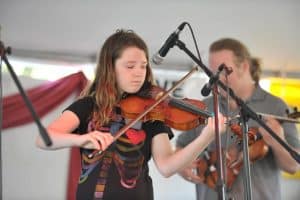
Camille Howes performing at the 2009 Creative Strings Workshop
As the Suzuki method has proven so well, by starting early, it really makes all the difference, since kids have a heightened ability to pick up language, whether verbal or musical. Malcolm Gladwell’s recently published book, “Outliers”, also makes the point very persuasively that most or all of the people we view as being exceptional at something benefited from early exposure to their particular pursuit. One could think of this in the same way as accruing financial equity- those that start their 401 k’s in their twenties far exceed the growth of others beginning in their thirties.
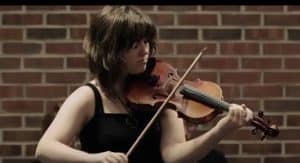
For most of my readers I’m preaching to the choir when I talk about the importance of starting to learn music at an early age. But many string players and teachers continue to think that jazz and improvisation should only be taught “after the fundamentals of technique have been learned”, without giving any reason for this claim whatsoever. I always promised myself that I would teach my daughter the things nobody taught me when I was young, and hoped that her success would prove what I felt sure about, namely that kids can and will thrive outside of the classical tradition as creative musicians if they are encouraged.
If anyone has ever heard wunderkind violinist Billy Contreras, he’s a prime example of what’s possible when a kid is given the right kind of encouragement-total genius and unbelievably original music. Billy worked under the wing of Buddy Spicher playing twin fiddles in Texas Swing, bluegrass, classical, and whatever styles touched him. He’s the model we should all look to as we bring string education into the 21st century. After having met him when Camille was just 6, I knew I was on the right path in terms of promoting improvisation to Camille. In the beginning, from the time she was 3, we’d have time after every practice session devoted to “make up songs”. We’d sing in the car while beating on the seats to keep the groove. Occasionally she would write a song that would stick, but usually they’d just be things that came in the spur of the moment and we never tried to keep track of them. It was fun.
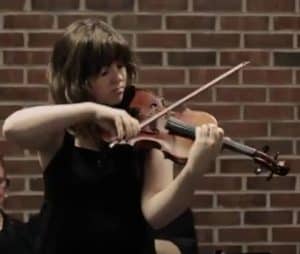
I think part of the reason she still enjoys playing, in spite of all the practicing, is because of the self-directed creativity and fun. She was resistant to learning theory until after she turned 10 and we got her enrolled in jazz piano lessons. Prior to that I just always let her do whatever she heard. It’s amazing what the ear is capable of. I’ve seen this work with other young prodigies like Mike Barnett and Jonathan Russell. They both used their ears when they were young and started to think about theory much later. I’m not sure what Billy would have to say about his early training. And another neat byproduct of all this is that when Camille plays classical music she appreciates it as a distinctive thing-it’s not just the one thing she does every day. It doesn’t get boring in the same way for her because she has a variety of musical challenges, all of which give her an enriched perspective.
Even though I didn’t start playing jazz until I was 20, I eventually got to a place with the music where I feel good about doing it. Those of you who are older, don’t be discouraged. Just know that it will take time. And to my Berklee students, if a 12 yr-old can do it, so can you. Get out your ipod and start transcribing.

